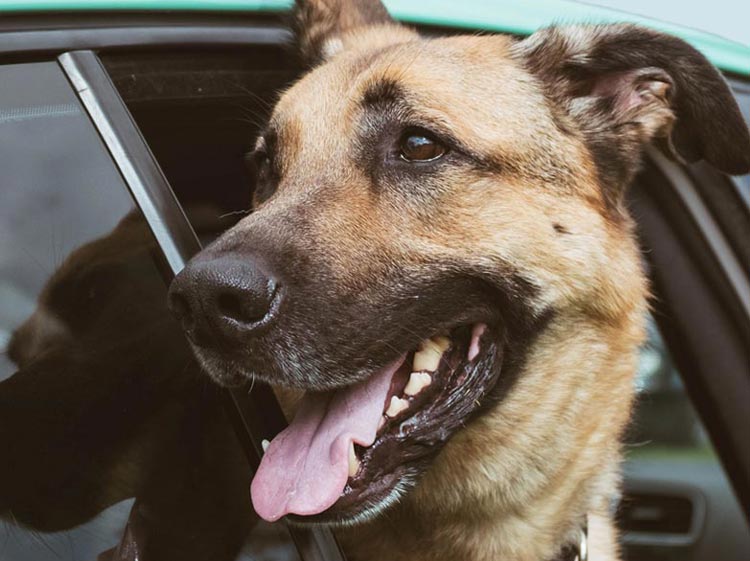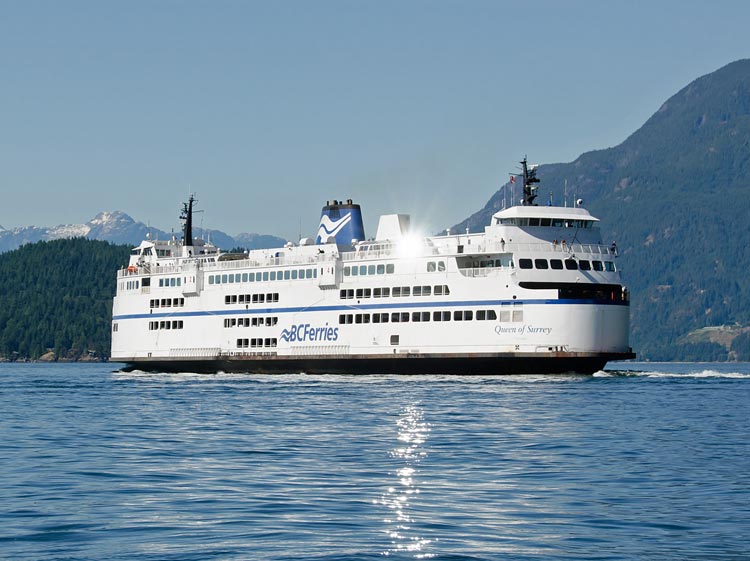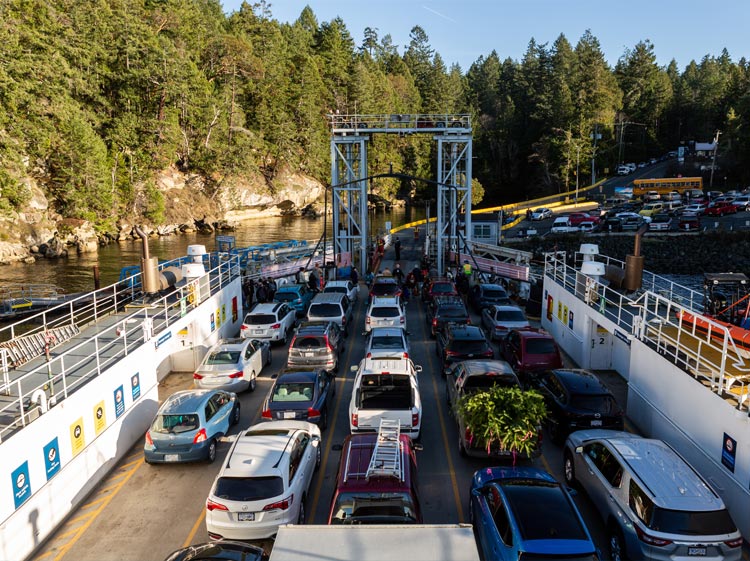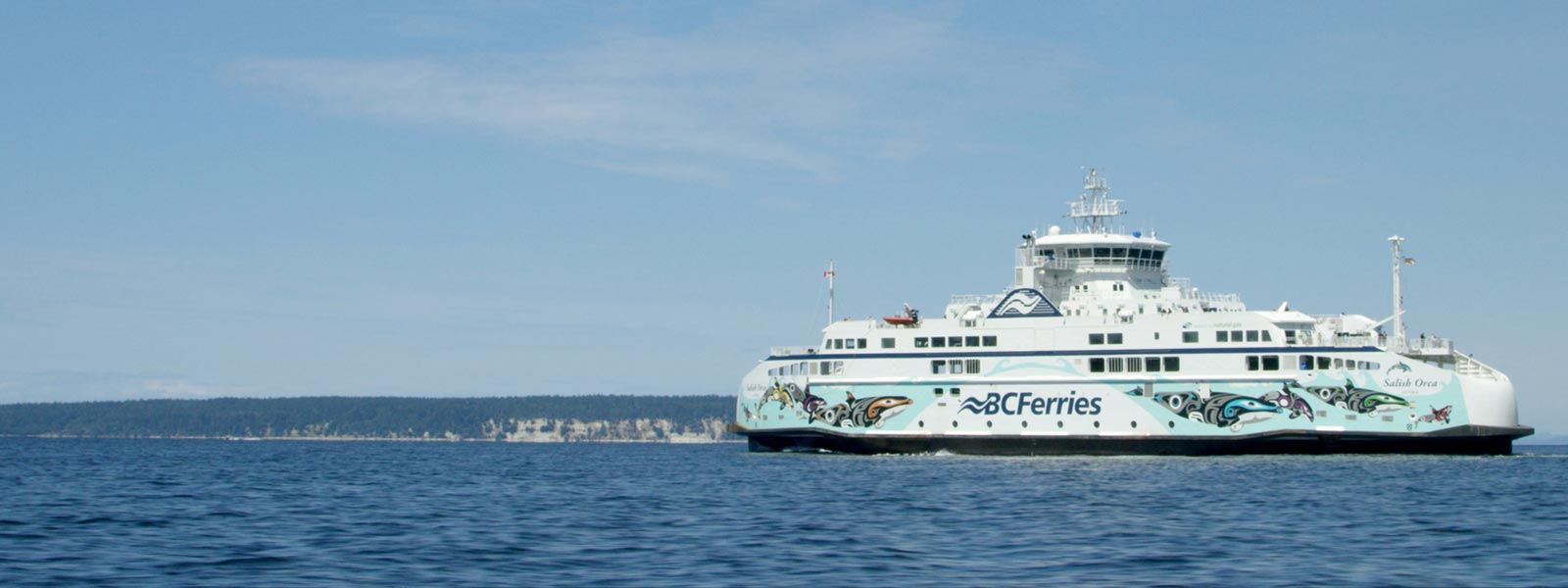




BC Ferries is required to comply with the regulations in the Transportation of Dangerous Goods Act & Regulations (TDG) and the Canada Shipping Act & Dangerous Goods Shipping Regulations. Failure to declare dangerous goods is an offence under Canadian law.
There are more than 3,600 dangerous goods listed in the Transportation of Dangerous Goods Act.
- Some dangerous goods items are permitted without documentation in limited quantities. View the list of common dangerous goods and the quantities allowed on board BC Ferries.
- Class 7 dangerous goods should be fully documented and packaged as per UN packaging requirements.
Declaring dangerous goods
If you plan to travel on our ferries with dangerous goods and do not already have a dangerous goods shipping document, you need to complete a dangerous goods shipping document ahead of travel. Print your completed document and present it to the ticket agent when you arrive at the terminal.
The following amounts of propane do not require dangerous goods documentation:
- Up to 2 cylinders, each with a maximum of 46 litres water capacity individually. The maximum capacity for both cylinders combined cannot equal more than 65 litres water capacity total.
- Propane must be for domestic use and must be secured to the vehicle or trailer.
- Limit of one (1) cylinder with a capacity not exceeding 18.9L water capacity
- This would make the 3rd allowable cylinder for RVs, trailers and camping vehicles.
Important propane safety alert: All propane tanks must be closed and tagged prior to boarding. Water capacity of propane cylinders can be found on the collar that surrounds and protects the valve.
- If you’re travelling on our North Coast routes, there may be additional regulations
- Contact your departure terminal (or nearest alternative listed below) for more information
- Graham Island (Skidegate): call (250) 559-4485
- Port Hardy (Bear Cove): call 1-877-223-8778
- Prince Rupert: call (250) 624-9627
Non-commercial vehicles
Dangerous goods include all gas or propane tanks, outboard motors with attached tanks, chainsaws, scuba tanks and more. View the full dangerous goods list.Notes:
- Your hand baggage must not contain any dangerous goods on the ferry, at any time
- BC Ferries baggage vans will not carry dangerous goods of any kind
Commercial vehicles
In addition to the dangerous goods shipping document, you also need:Dangerous goods driver certificate
All drivers transporting dangerous goods must be properly trained, and carry a valid certificate issued by their employer.
Vehicle safety markings
All vehicles transporting dangerous goods must have the appropriate safety markings clearly indicated.
Dangerous goods cargo sailings and dangerous goods being transported in and out of Prince Rupert
Complete and fax our dangerous goods pre-clearance fax cover (available below) along with a completed dangerous goods shipping document to your departure terminal at least 48 hours before travel.
Check-in times - travelling with dangerous goods
Drivers must declare all dangerous goods before booking their sailing. Failure to declare dangerous goods is an offence under Canadian law.Drivers can declare their dangerous goods based on the route booked and departure terminal:
- If making an online booking, select the dangerous goods option when entering the vehicle information
- If travelling without a reservation or on a non-bookable route, drivers must declare all dangerous goods upon arrival at the terminal:
- to the ticket agent in the ticket booth prior to purchasing a ticket
- where there is no ticket booth, declare to a terminal attendant
- at unstaffed terminals, declare to a vessel officer prior to departure
The following terminals require drivers to check-in 45 minutes prior to sailing time. This means they must have their vehicle at the terminal, with all dangerous goods declared, and their shipping documentation provided 45 minutes before their scheduled departure time:
- Victoria (Swartz Bay)
- Vancouver (Tsawwassen)
- Vancouver (Horseshoe Bay)
- Nanaimo (Departure Bay)
- Nanaimo (Duke Point)
- Sunshine Coast (Langdale)
For North Coast terminals including Prince Rupert, Port Hardy (Bear Cove) and Skidegate, drivers will need to call to check terminal specific time limits:
- Graham Island (Skidegate): call (250) 559-4485
- Port Hardy (Bear Cove): call 1-877-223-8778
- Prince Rupert: call (250) 624-9627
For all other terminals drivers are required to check-in 30 minutes prior to sailing time.
Important:
- If drivers do not have their vehicle at the terminal, with all dangerous goods declared, and their shipping documentation provided as per the check-in time requirements above, travel could be delayed until the next sailing

Pets
Your small pets, including dogs, cats, birds and more, are welcome on our ferries and ride for free.

Carrying livestock
Find out everything you need to know about travelling with livestock on BC Ferries.

Driving on board
What you need to know about travelling on our ferries with a vehicle.

